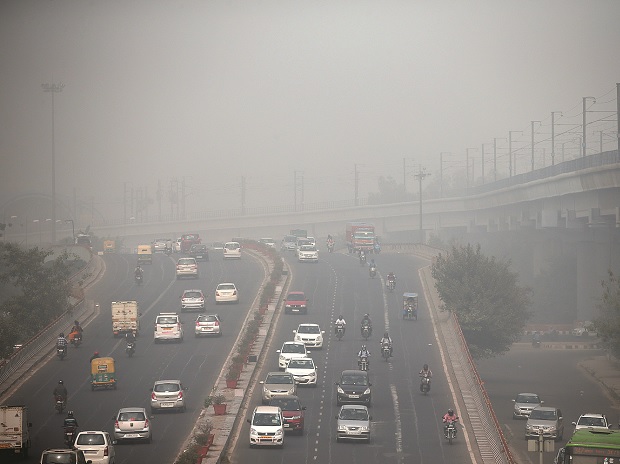

The air pollution issue is still a bit more complex than what we have been experiencing earlier as the fuel powered vehicles are increasing in millions annually. Firstly because the technologies of these petrol and diesel engines and the standards that go along with them evolve fast. Secondly, the petrol and diesel vehicles are often quite different, both in their structures and in their uses.

COMPETING EACH OTHER
Whatever it is, both petrol and diesel may compete with each other as to which is the largest polluter but the fact is that both cause the greatest destruction as far as air pollution is concerned. It's high time that an alternative has to be on roads at the earliest to save the millions of people losing their precious lives due to the after effects of air pollution. We as a non profit making organization are working with utmost sincerity for this social cause to happen as early as possible which is to promote a healthy clean green environment
DIESEL OR PETROL THE MOST POLLUTANT
The issue surrounding diesel and petrol engine pollution is very common. There was a perception initially that diesel engines pollute less, but today we blame diesel engines for polluting more. Diesel engines emit less carbon dioxide and greenhouse gases than petrol engines because of the particular type of fuel and the internal efficiency of the diesel engine. More specifically, the fuel used in diesel engines has a higher compression ratio than petrol and it also performs better than petrol engines. As a result, less fuel is used to travel the same distance, thereby saving more carbon dioxide. Most of the studies indicate that the carbon emissions of diesel engines is about 10% less than the petrol engines of the same category. So diesel cars pollute less than petrol cars. However, things are not so simple when we look at other sources of pollution also such as fine particles, it’s petrol that outperforms.


PETROL ENGINES EMIT FEWER FINE PARTICLES & AIR POLLUTANTS
Indeed, diesel engines have the uniqueness of requiring large amounts of air for fuel combustion to happen. The problem with this additional air is that it causes more chemical reactions which release significant amounts of air pollutants. Among these pollutants are dioxides, nitrogen oxides, gases and fine particles, such as polycyclic aromatic hydrocarbons, ethane, and ethylene. Initially, when the first diesel engines arrived on the market, they were significantly less efficient than petrol engines in terms of fine particles. In other words, they emitted much more fine particles than gasoline engines.
FILTERS ARE NOT ENOUGH
Despite being able to filter a huge amount of fine particles, these filters
cannot retain the finest particles that are also
the largest ones produced by diesel engines. At the same time these filtering
technologies do not always have a
positive effect on emissions. In addition, studies conducted by the German
Federal Office of the Environment have
also attested that diesel engines generally pollute much more in real conditions
than the official statements of
manufacturers, despite the presence of filters. Most experts agree diesel
engines produce even more fine particles
than equivalent petrol engines.

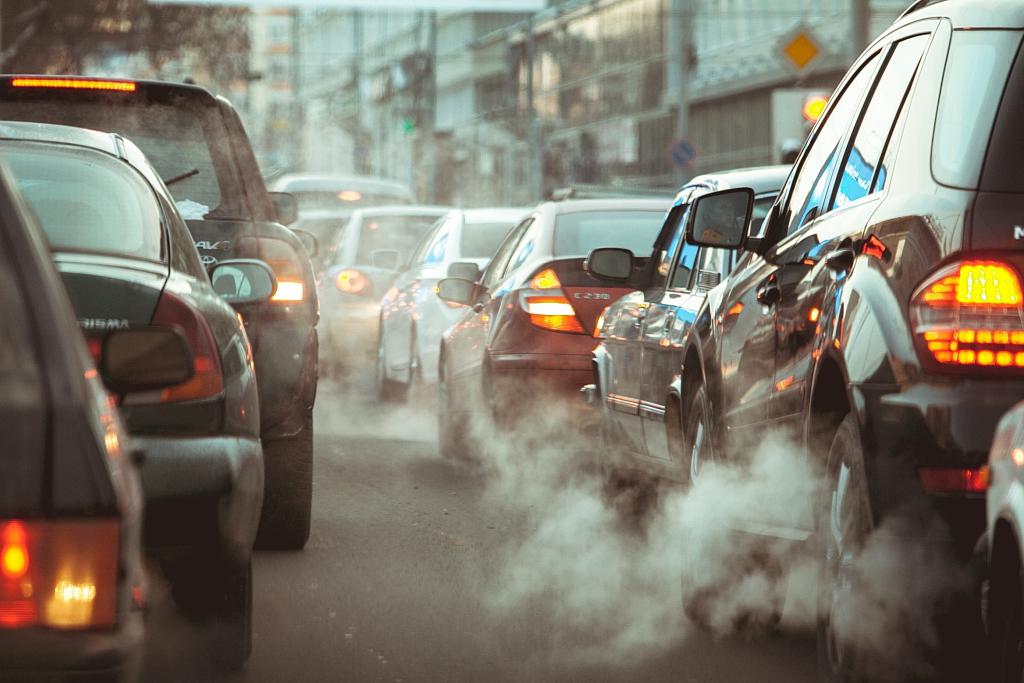
PETROL LESS POLLUTED THAN DIESEL
It can be said that petrol vehicles are on average less polluting than diesel vehicles. They emit less fine particles and even less carbon dioxide as they are often smaller vehicles used for shorter travels but both petrol and diesel vehicles together with CNG vehicles as a companion is increasing the density of air pollution day by day which has become a big struggle for billions of people to breathe properly and several millions facing death mercilessly.
EURO 6 - NOT MUCH DIFFERENCE
In recent years, a system called direct injection has gradually spread over fuel
powered engines. This system uses a
pump to spray fuel into the cylinder at high pressure to reduce fuel
consumption. The problem with this system,
however, is that it significantly increases the number of fine particulate
pollutants in petrol engines. As a result, the
fine particle emission rates of petrol engines are increasing as this type of
engine develops. They can, in fact,
eventually catch up with the fine particle emission rates of diesel engines. As
a matter of fact, the Euro 6 standards
have the same limits on fine particle emissions happening for diesel and petrol
engines.
The problem becomes more complicated with the different models as well as the
different uses of petrol and diesel
vehicles. On average diesel vehicles are bigger, heavier and more efficient than
petrol vehicles. They are also used
more frequently to travel greater distances.
As a result, in transport and environment, diesel engines in circulation are on
average, polluting more than petrol
engines in terms of carbon dioxide emitted over their life cycle. As particle
pollutants cause serious destruction
to mankind, especially chronic respiratory diseases, an alternative for fuel
powered vehicles should be available for
the common man at the earliest and we do the same.
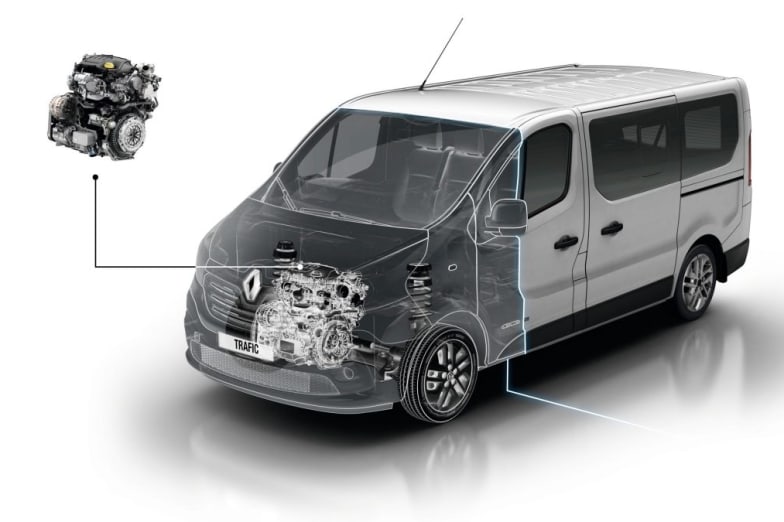

MORE THAN 90% BREATHING UNSAFE AIR
Fine particles of chemicals which are exhausted mainly out of the fuel powered vehicles and coal firing power plants can travel thousands of miles on the back of dust storms, which may also carry pathogens and harmful substances, causing acute and chronic respiratory problems. By giving maximum awareness about these global disasters of air pollution, Team green is working all out to establish a remedy for this global disaster of air pollution and thereby reduce the millions of premature deaths while implementing all possible measures for a green healthy environment..
OIL TRANSPORT - POLLUTION AT
ITS PEAK
Transporting oil from 10 countries to more than 150 countries around the world is
the main reason for the international
sea routes being busy and the major reasons for air pollution. So the
replacement of petrol and diesel vehicles with
electric vehicles or hydrogen powered vehicles is the only option to reduce this
huge disaster of air pollution from oil.

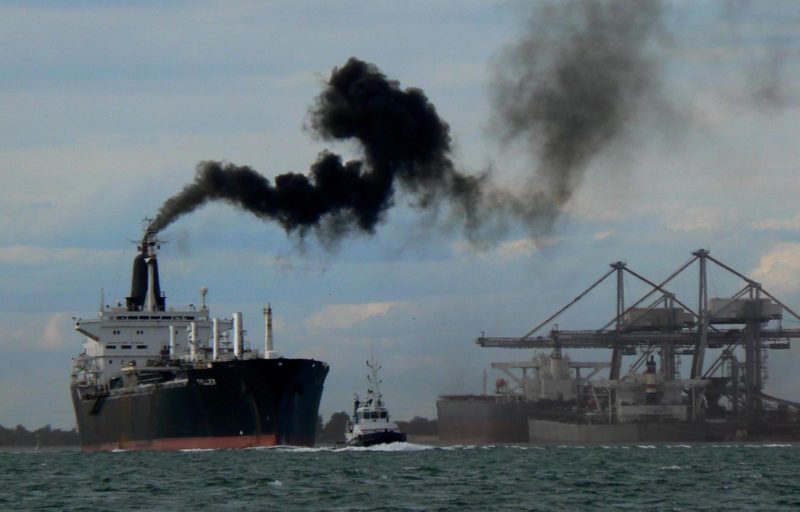
POISONOUS BUNKER FUEL
Nearly all cargo ships use diesel combustion engines to turn the propellers, plus diesel generators that power onboard lighting systems and communications equipment. Many vessels still burn heavy bunker fuel, a viscous carbon intensive petroleum product that's left from the crude oil refining process. The environmental impact of shipping includes air pollution, water pollution, acoustic, greenhouse gas emissions and oil pollution. Transporting goods around by sea requires more than 300 million tons of dirty fuel, which produces maximum carbon dioxide emissions and thereby giving the international maritime shipping industry the same carbon footprint as a country like Germany in size.
CONTAINER SHIPS WITH 80000
LITRES IN A DAY
A Triple E class Maersk container ship capable of carrying more than 18,000
shipping containers with 60 megawatts of
power, uses 80,000 liters of fuel in a day and this is also considered as the
most efficient cargo ship on the planet. There
is an indication that they might be able to build something for use in a hybrid
arrangement on larger ships, where
hydrogen could be used to support auxiliary energy requirements of larger
vessels.
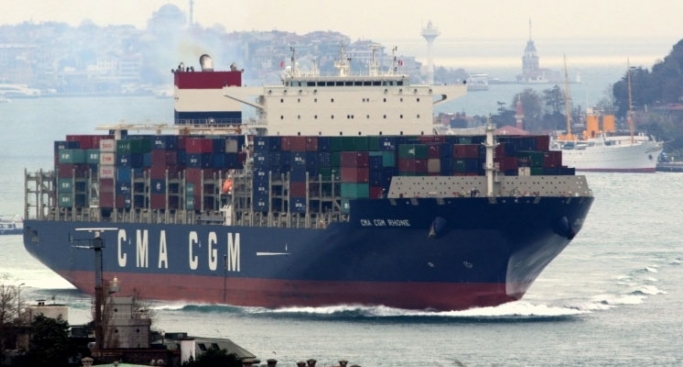

CONTAINER SHIPS - THE SIXTH LARGEST POLLUTER
If shipping was a country, it would be the sixth-largest polluter in the world. The global shipping industry is enormous, where thousands of ships carry billions of dollars worth goods each year across nearly every ocean on the planet. Those ships run mostly on a particularly dirty type of fuel known as heavy fuel oil, or bunker fuel. It's thick and sooty and when it burns, it emits sulphur and particulate matter that can cause serious respiratory illness. It also emits greenhouse gases, including carbon dioxide and methane, which trap heat in the atmosphere and cause global warming. The shipping industry is growing so steadily that it's projected to produce more than 15% of global greenhouse gas emissions by midcentury if ships continue to burn the same fuel.
OIL AND COAL - AIR POLLUTION
KINGS
Transportation of oil and coal which cover more than 50% of the global shipping
transportation results in massive air
pollution both in terms of transporting and use of the same. Maritime shipping
vessels like coal carrying ships are
powered by enormous engines that burn thousands of gallons of heavy fuel oil
every day when they're at sea.
There are signs that the status quo is changing and that the new hydrogen
powered fuel could make cargo ships
among the cleanest transportation methods on earth. Things are changing and they
are changing quite fast.
The international body that helps create global shipping regulations has clamped
down on emissions of some
ir-polluting substances when ships are in or near ports. The new regulations
which decrease air pollution limits
dramatically require ships to significantly cut the amount of sulfur pollution
they emit when they're near land
especially. For the United States, the regulations apply anywhere within 200
miles of its coastline and the easiest
way to comply with the new regulations is to burn a different, less
pollution-intensive type of diesel fuel called
hydrogen which has no pollution.


GREEN VOICE FOR HYDROGEN VESSELS
Green Asian Voice is fully committed to bring about this change by conducting maximum awareness programs and finding global investors for new hydrogen powered container ships. Our main objective of replacing maximum petrol and diesel vehicles will automatically reduce the traffic of the huge container ships where some of them even use 80000 litres of diesel in a single day which is unbelievable. The transportation of this oil from 10 countries to more than 150 countries makes the international sea route the busiest by polluting the whole universe in one stretch but we are confident that the faster conversion of fuel powered vehicles to electric vehicles will reduce the use of oil globally and thereby reducing the traffic of ships too. Hydrogen ships will further reduce pollution to a great extent and this will be a turning point in the life of each and every citizen of this universe because air pollution is a global problem without boundaries.
ELECTRIC & HYDROGEN VEHICLES -
FIRST SOLUTION FOR POLLUTION
As vehicular pollution is the single biggest reason for deteriorating air
quality, the perfect remedy for the same is to
promote the two available technologies that really help to reduce carbon dioxide
emissions, other poisonous
chemicals, fine particle emissions, especially if powered by renewable energies,
are the most eco-friendly
alternatives called hydrogen and electric vehicles. We must keep in mind that
electric vehicles are 100% green
and the best option to reduce our environmental footprint on transportation.
Green Asian Voice feels the same
and is fully committed to take vital steps for replacing the millions of petrol,
diesel and CNG vehicles to electric
vehicles, as the first major step towards enabling a healthy green environment
which reduces air pollution to the
maximum and thereby saving the lives of billions of people across the globe.
Hydrogen, which is also the most
eco-friendly alternative, can be used to power electric vehicles.
Learn More


TWO KILLERS IN
It's shocking to know that 22 of the world's most polluted cities are in India where deadly polluted air and covid - 19 virus, the two giant killers who have many similarities between each other are putting millions of people at risk, just by breathing. Deadly peril is smothering our cities, killing four times as many people in one year than covid - 19. Across the world nearly nine million people died from air pollution in 2018, and in India, it claims the life of one child every three minutes. The peril is air pollution and the victims have died simply by breathing in the air around them. Fossil fuels are the source of toxic fug engulfing the cities. Greenhouse gas emissions from coal, oil and gas are simultaneously forcing global warming, while doing a hit and run number on city populations through the release of tiny poisonous particles which penetrate deep into the lungs leading to lung cancer, coronary heart disease, strokes and early death. The smallest particles are considered especially dangerous to human health because they get through many of our bodies' defences such as nose hair or mucus. With millions breathing deadly air that can kill anyone for which you have no control over it, the reality is very hard to grapple with.
DONATE US
We sincerely welcome all socially committed citizens universally to join hands with your humble contributions as donations to fight against the greatest disaster of mankind which is air pollution and thereby save the millions of people who are losing their precious lives along with the billions of people who are struggling with chronic respiratory diseases every year, due to the disastrous effects of air pollution.
So let's decide today that my smallest contributions can change a disaster which the world is facing and there is no doubt that your life will become more meaningful and even your smallest effort will be a great contribution for the biggest change that the whole universe is thirsting. To know the intensity of the same we can categorically establish that air pollution is thousand times more problematic than the recent coronavirus pandemic which has shaken and shut the whole world for a considerable period of time.
(Donation from Indian citizens only)
Bank Name : Standard Chartered Bank
Account Number : 5 2 5 0 5 9 0 0 2 1 8
Account: Green Asian Voice Council
Type: Current Account
IFSC : SCBL0036028
Branch: Connaught Place, New Delhi
(Donation from anywhere)
Bank Name : Standard Chartered Bank
Account Number : 0 1 3 2 5 4 1 0 0 0 1
Account: Green Asian Voice
Type: Current Account
Branch: Kathmandu, Nepal
Swift Code : SCBLNPKA


